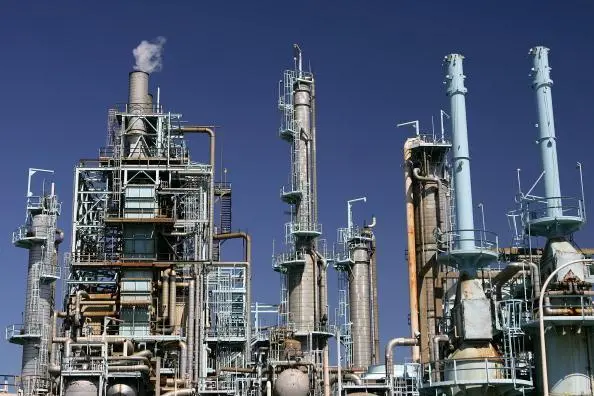PHOTO
- Oil prices gain on tightening supplies
- Asian shares trade near seven-month highs
- Abu Dhabi’s index adds 0.4 percent boosted by ADNOC Distribution
- Dollar drops, gold edges higher
Oil prices
Oil prices hovered early on Monday near their highest level since November 2018 on tightening supplies.
The Organization of the Petroleum Exporting countries (OPEC) issued a list of oil production cuts made by its members and other major producers since the start of the year. It also detailed scheduled cuts until the end of June in a bid to boost confidence in its oil supply reduction pact.
Supply from OPEC countries hit a four-year low in March, a Reuters survey found last week.
Oil prices have also been boosted by lower supply from Venezuela, as the United States introduced petroleum export sanctions against state-owned Venezuelan energy firm PDVSA.
International benchmark Brent futures were at $70.72 per barrel at 0225 GMT on Monday, up 38 cents, or 0.5 percent from their last close.
U.S. West Texas Intermediate (WTI) crude were up 37 cents, or 0.6 percent, at $63.45 per barrel.
“Brent prices increased more than 30 percent year-to-date as OPEC+ continued to cut supply for 4 months in a row and optimism over U.S.-China trade talks helped to buoy the demand outlook,” U.S. bank J.P.Morgan said in a note released over the weekend, according to a Reuters report.
Global markets
Asian shares traded near seven-month highs on Monday, boosted by a rebound in U.S. payrolls and hints of more stimulus in China.
Beijing said in a document published on the central government’s website late on Sunday it would step up a policy of targeted cuts to banks’ required reserve ratios to encourage financing for small and medium-sized businesses, according to a Reuters report.
Chinese blue chips climbed 1.4 percent to territory not visited since March last year. MSCI’s broadest index of Asia-Pacific shares outside Japan followed by gaining 0.4 percent to its highest since August.
On Friday, the U.S. payrolls report showed a solid 196,000 rise in jobs in March, while annual wage growth slowed a little to 3.2 percent.
Middle East markets
Abu Dhabi’s index added 0.4 percent boosted by an 8 percent rise in the shares of ADNOC Distribution rose 8 percent. On Thursday, the company's shareholders approved an increase in the firm's dividend policy.
The Dubai index increased 0.2 percent, rising for its seventh straight session. Union Properties was by far the stock with the highest trading volume, gaining 0.8 percent.
Saudi Arabia's Tadawul index was down 0.6 percent, ending a previous 9-day gain streak pulled down by Al Rajhi Bank which was down 1.1 percent.
Egypt's stock market was down 0.7 percent on Sunday, weighed down mainly by Orascom Investment Holding, which lost 7.1 percent after reporting last week a drop in standalone net profit.
Kuwait’s premier market index rose 1.4 percent, Bahrain’s index gained 1.5 percent and Oman’s index added 0.8 percent.
Currencies
The dollar dropped early on Monday.
The dollar index, which measures the greenback against a basket of six major currencies, inched down 0.15 percent to 97.253.
Precious metals
Gold prices edged higher as the dollar dropped.
Spot gold was up 0.1 at $1,293.21 per ounce by 0105 GMT.
U.S. gold futures gained 0.1 percent at $1,297.10 an ounce.
(Reporting by Gerard Aoun; Editing by Mily Chakrabarty)
Our Standards: The Thomson Reuters Trust Principles
Disclaimer: This article is provided for informational purposes only. The content does not provide tax, legal or investment advice or opinion regarding the suitability, value or profitability of any particular security, portfolio or investment strategy. Read our full disclaimer policy here.
© ZAWYA 2019




















